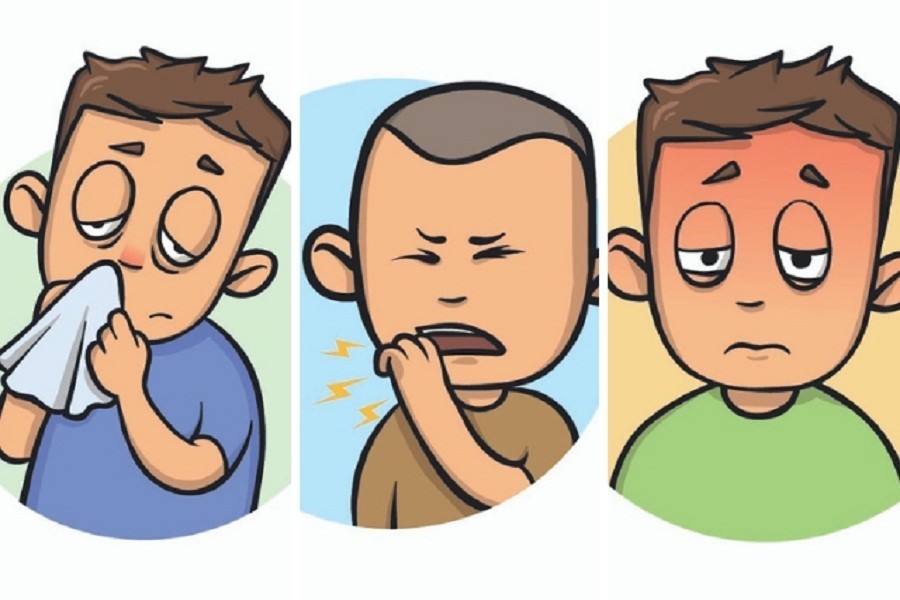As the season is changing with the onset of winter, there is hardly one household not to experience an episode of a common cold.
A cure for the common cold is yet to be discovered. Although it is not a serious condition, a common cold does make our life miserable.
It is characterised by symptoms like runny nose, fever, nasal blockage/congestion, sore throat, etc. A cold usually lasts for 1-2 weeks, during which there are several things for managing it.
Stay hydrated
One suggestion almost universally suggested for many diseases is to keep the body hydrated. The common cold is no exception. Drinking adequate water, lemon water or juices helps.
Adding one teaspoon of honey may also be beneficial. For coffee lovers, it is better to avoid coffee altogether or at least cut back.
For nasal blockage, drinking warm liquid can be relieving. One home remedy can be a cup of hot herbal tea with one teaspoon of honey taken just before bedtime.
Taking rest is also important. Sleeping every night for 8-10 hours is suggested. While sleeping, elevating the head with two pillows may help relieve congested nasal passages. For people doing regular strenuous exercise, it might be time to take a break.
Soar throat solution
For sore throat, a saltwater gargle with one teaspoon of salt per cup of warm water (~250 ml) four times daily can reduce the pain and swelling. Drinks such as tea containing tannin, apple cider vinegar, one tablespoon of lemon juice and honey mixed with two cups of hot water - all are helpful.
Nasal congestion
Nasal congestion or blockage can be relieved by medicines called non-prescription decongestants. They must be used according to the leaflet provided with the medicine.
Saltwater rinsing of the nose is another option. For that 1/4 teaspoon salt and 1/4 teaspoon baking soda is added to ~250 ml of warm water.
The procedure for rinsing is to hold one nostril closed by applying finger pressure while rinsing the other nostril with the salt mixture. Repeat two to three times, then treat the other nostril.
If possible, taking a hot shower for 10-15 minutes is not a bad idea. Using humidifiers in the house is also helpful to relieve congestion by adding moisture to the air. The water in the humidifier should be changed daily and it must be cleaned properly according to the instruction manual.
While suffering from a common cold, it is important to blow the nose regularly rather than holding it back, which unfortunately many of us do.
To do that, we should press a finger over one nostril and blow gently through the other. Repeat the same for the other nostril.
Common medications to offer symptom relief like decongestants, antihistamines and paracetamol can be used only in adults and children over 5 years. They would not increase the speed of recovery.
If possible, try to avoid flying during a bout of cold. If absolutely necessary, using a decongestant and constant chewing (e.g. chewing gum) during the flight is advisable.
Foods that help
There are some common food items that are found to be useful in common cold patients. Studies showed that chicken soup with vegetables is effective for reducing the symptoms of a common cold.
Another remedy is ginger. A few slices of raw ginger root in boiling water may help soothe a cough or sore throat. Honey is also beneficial and drinking it with tea or lemon can ease some symptoms of a cold.
One study revealed that if the children are given 10 grams of honey at bedtime it can lower the severity of their cough symptoms, allowing them to sleep soundly. But it must be noted that honey should not be given to a child younger than 1 year.
Stay away from antibiotics
There are some things we need to stay away from when suffering from a common cold. One is antibiotics.
It is a popular choice to start taking antibiotics as soon as the symptoms start. This is completely wrong since common cold is a viral infection and antibiotics have no effect on viruses. For smokers, cutting back cigarettes is advisable, if not quit.
Some remedies have dubious authenticity. For example, many people turn to vitamin C when experiencing cold. There is little evidence to support that vitamin C has any effect if taken after you have cold symptoms. Same applies to zinc supplements.
Last but not the least, it is necessary to consult the physician if
- the cold symptoms last more than two weeks
- fever >100 degrees for three days or more
- there is chest pain and/or and shortness of breath
Imtiaz Ahmed completed his MBBS from Dhaka Medical College.
[email protected]


